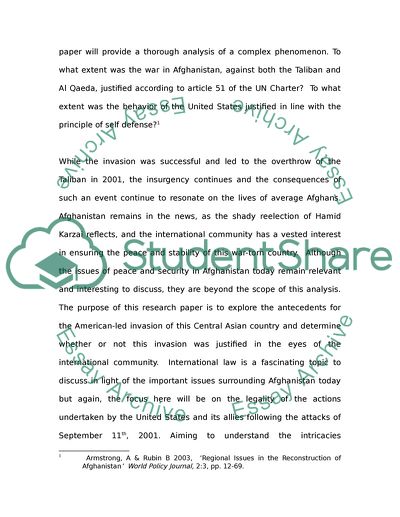Cite this document
(“The US Decision to Invade Afghanistan Research Paper - 1”, n.d.)
The US Decision to Invade Afghanistan Research Paper - 1. Retrieved from https://studentshare.org/law/1729158-international-law
The US Decision to Invade Afghanistan Research Paper - 1. Retrieved from https://studentshare.org/law/1729158-international-law
(The US Decision to Invade Afghanistan Research Paper - 1)
The US Decision to Invade Afghanistan Research Paper - 1. https://studentshare.org/law/1729158-international-law.
The US Decision to Invade Afghanistan Research Paper - 1. https://studentshare.org/law/1729158-international-law.
“The US Decision to Invade Afghanistan Research Paper - 1”, n.d. https://studentshare.org/law/1729158-international-law.


